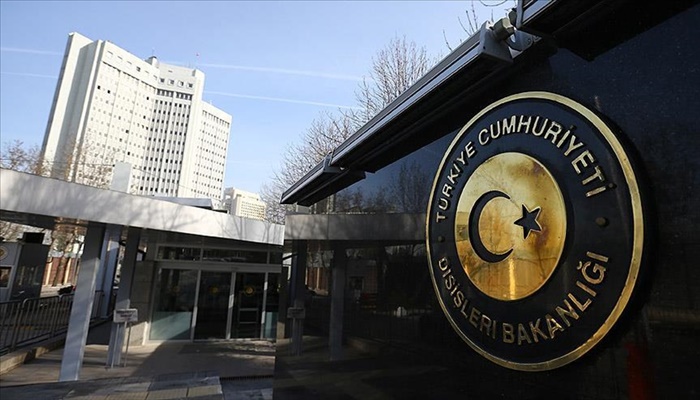The Turkish Foreign Ministry has revoked the accreditation of nine honorary consuls despite the fact that their tenure was expected to end in 2025, Deutsche Welle’s Turkish edition reported.
The honorary consuls who have lost their credentials based on a ministry decision dated Oct. 12 are Sweden’s Antalya honorary consul Nil Sağır, the UK’s Bodrum honorary consul Neşe Çoşkunsu, Belgium’s İzmir honorary consul Nezih Öztüre, Austria’s İzmir honorary consul Mustafa Ülkü Caner, Romania’s İskenderun honorary consul Faruk Rende, Ethiopia’s Konya honorary consul Servet Mehmet Hekimoğlu, Dominica’s İstanbul honorary consul Emir Uyar, Belize’s İstanbul honorary consul Mustafa Çıkrıkçıoğlu and Lithuania’s Nevşehir honorary consul Yakup Dinler.
The ministry did not cite any reason for its decision to revoke the accreditation of the honorary consuls.
Honorary consuls are not career officials of the represented state. They may be locals with the nationality of the sending country, and in smaller cities or in cities that are distant from full-time diplomatic missions, a foreign government that feels some form of representation is nevertheless desirable may appoint a person who has not hitherto been part of their diplomatic service to fulfill this role.
Sweden’s honorary consul in Antalya Sağır expressed disappointment over the Turkish Foreign Ministry’s decision and explained it in light of the current political atmosphere in the country. She told DW she would continue to promote democracy, human rights and the supremacy of law in Turkey just as she has been doing, adding that the Swedish Foreign Ministry worked hard to reverse the Turkish Foreign Ministry’s decision about her but its efforts were to no avail.
Turkey and 10 Western countries barely avoided a diplomatic crisis after 10 ambassadors released a statement on Oct. 18 calling for the release of jailed businessman Osman Kavala release on the fourth anniversary of his detention.
Turkish President Recep Tayyip Erdoğan threatened to expel the ambassadors, accusing them of interfering in Turkey’s internal affairs; however, he stepped back from his threats after the United States and several of the other concerned countries issued identical statements saying they respected a UN convention that required diplomats not to interfere in the host country’s domestic affairs.
Kavala, 64, who has yet to be convicted by a court, has been in prison since 2017 on politically motivated charges.



